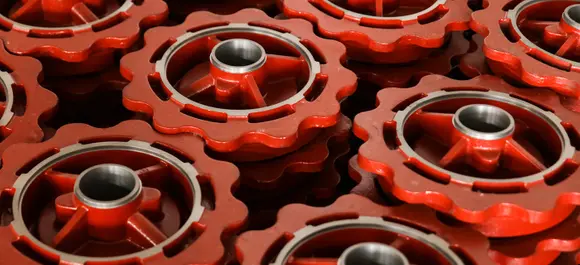Mobile:+86-311-808-126-83
Email:info@ydcastings.com
English
stainless steel impeller
The Advantages of Stainless Steel Impellers in Modern Engineering
In the realm of mechanical engineering and fluid dynamics, the choice of materials is crucial to the efficiency and longevity of components such as impellers. Among various materials, stainless steel has emerged as a preferred option for manufacturing impellers, offering a unique blend of properties that enhance operational performance and durability. This article explores the advantages of using stainless steel for impellers, particularly in applications involving pumps and turbines.
Corrosion Resistance
One of the primary reasons for choosing stainless steel impellers is its exceptional resistance to corrosion. Stainless steel is an alloy that contains a minimum of 10.5% chromium, which forms a passive layer of chromium oxide when exposed to moisture. This protective layer prevents rust and deterioration in harsh environments, making stainless steel impellers particularly suitable for applications involving water, chemicals, and various fluids. In industries like food processing, pharmaceuticals, and marine engineering, where exposure to corrosive substances is common, stainless steel impellers ensure a longer lifespan and reduced maintenance costs.
Mechanical Strength
Stainless steel impellers possess a high tensile strength which enables them to withstand significant operational pressures and stresses. This mechanical strength is vital for applications where impellers are subjected to high rotational speeds and aggressive fluid environments. The robustness of stainless steel ensures that impellers maintain their shape and functionality over time, reducing the risk of fracture or failure during operation. Engineers often favor stainless steel over other materials like plastics or low-grade metals, which may not offer adequate strength in demanding applications.
Enhanced Efficiency
stainless steel impeller

The design of impellers is crucial for optimizing fluid flow and energy efficiency within systems such as pumps and turbines. Stainless steel impellers can be precisely manufactured to meet specific geometrical requirements, allowing for improved flow characteristics and reduced turbulence. This precision in design not only increases the efficiency of fluid movement but also contributes to energy conservation—an essential aspect in modern engineering where energy costs are a significant consideration.
Temperature Resistance
Stainless steel impellers also exhibit excellent performance under varying temperature conditions. Unlike some materials that can weaken or deform at high temperatures, stainless steel maintains its structural integrity, making it suitable for applications involving hot fluids or environments. This thermal stability ensures that impellers can operate reliably in diverse conditions, further enhancing their versatility in industrial applications.
Low Maintenance and Longevity
Due to their corrosion resistance and mechanical strength, stainless steel impellers require less maintenance compared to those made from less durable materials. This translates into fewer production downtimes and lower operational costs for industries reliant on pumps and turbines. Investing in stainless steel impellers can lead to substantial savings over time through reduced need for replacements and repairs.
Summary
In conclusion, stainless steel impellers stand out in the field of engineering for their numerous advantages including corrosion resistance, mechanical strength, enhanced efficiency, temperature resilience, and low maintenance needs. As industries strive for optimized operations and longevity of equipment, the demand for stainless steel impellers is likely to continue to grow. Whether in water treatment facilities, chemical processing plants, or energy production systems, the role of stainless steel impellers in advancing technological solutions is undeniable. By choosing stainless steel, engineers not only improve the performance of mechanical systems but also promote sustainability through longer-lasting and reliable components. As technology evolves, stainless steel will likely remain a cornerstone material in the design and engineering of efficient fluid handling systems.
-
Superior Aluminum Castings in Automotive Engine PartsNewsAug.22,2025
-
Common Materials Used in Fan Housing ManufacturingNewsAug.22,2025
-
Symptoms of a Stuck Automobile Water Pump ImpellerNewsAug.22,2025
-
The Importance of Valve Castings in Water TreatmentNewsAug.22,2025
-
Welding Techniques for End Cap Stainless Steel FittingsNewsAug.22,2025
-
How to Install a Water Pump Connector ProperlyNewsAug.22,2025











